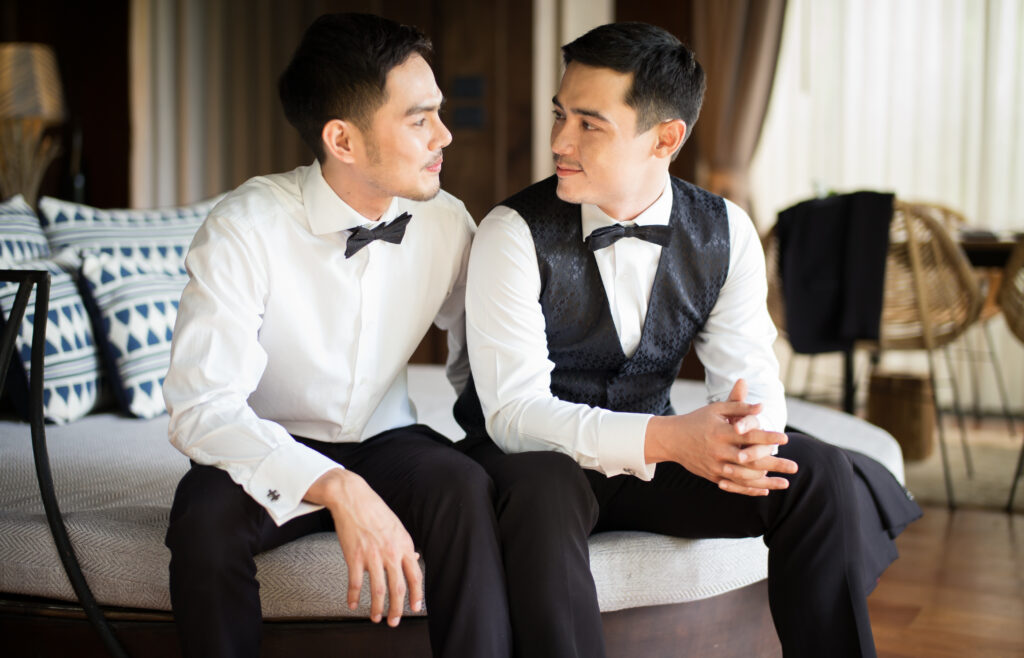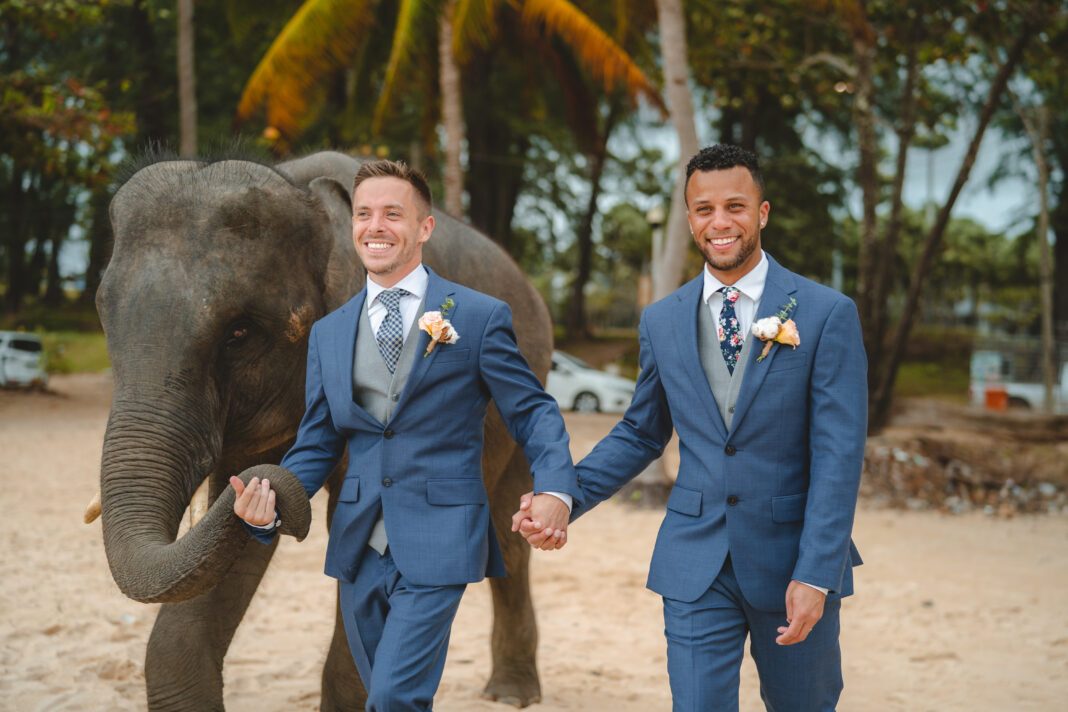In January, Thailand passed a landmark bill to legalize same-sex marriage, cementing its reputation as one of Asia’s most inclusive travel destinations.
Industry experts expect that the new law, which makes it the third Asian country to legalize equal marriage, after Taiwan and Nepal, will make Thailand an even more attractive destination for queer tourists.
“Thailand has always positioned itself as a destination that celebrates people regardless of who they are, how they identify and who they love,” says Chompu Marusachot, the director of the Tourism Authority of Thailand’s (TAT) New York Office. “Now that the marriage equality bill has taken effect, we believe that there will be more LGBTQ+ tourists coming to Thailand for both travel and celebrating their love through the exchange of vows and honeymoons.”
Marriage equality laws can boost a country’s tourism industry, including increasing the appetite for destination weddings, according to a recent study by travel agency Agoda. The study predicted that Thailand’s new law could, within the next two years, bring in an additional four million yearly visitors. Some of those are expected to tie the knot there—and Thai wedding planners are preparing for them.

Todd Hewitt, the owner of Gay Weddings Thailand, founded his wedding planning company in 2023 in anticipation of the legislation. The Canadian entrepreneur spent much of his career working in hospitality with hotel chains, leading him to work and travel in Asia and Central America. On a visit to Thailand in 2020, travelling from Hong Kong where he was working for a hotel company, he decided to move to Bangkok full time. When news of the same-sex marriage law came out, his friends encouraged him to use his hospitality skills to support queer newlyweds. Gay Weddings Thailand is now one of several Thai businesses offering queer travellers a suite of wedding-planning services, from choosing venues to managing budgets.
Hewitt says queer-focused service providers can help queer clients feel safe and supported, especially when they choose to wed outside of their home country and aren’t experts in the local culture, traditions, laws and costs.
“As a gay person myself, I completely understand the fears someone may have in getting married in a new country,” says Hewitt. “We want clients to feel at ease and know that we understand what they’re going through, especially if they’re new to Thailand and may not know how open and accepting people are here.”
Why wed in Thailand
Some attribute Thailand’s accepting attitudes to LGBTQ+ people and their relations to Buddhism, which usually promotes kindness, compassion and tolerance and is practised by more than 90 percent of Thais. The Tourism Authority of Thailand has tapped into that connection and has for more than a decade been running campaigns to woo LGBTQ+ tourists. Its Go Thai. Be Free website provides tips on destinations, events and hotels that are particularly queer friendly.
As the only Southeast Asian country to recognize equal marriage, Thailand expects queers from around the region, as well as Westerners looking for a memorable destination wedding, to take advantage of the new law. Hewitt says many of his clients are from countries like China, Singapore and Hong Kong, where LGBTQ+ rights are more limited.
“These countries are actually scary in terms of what’s happening to LGBTQ+ communities and how the government is treating them, but couples still want to show their commitment to one another,” he says.
A Thai destination wedding also gives couples the chance to choose from a diversity of natural landscapes, while incorporating elements of the local culture. Hewitt says that many clients want to weave Thai wedding traditions into their ceremonies. The most popular ones among his clientele include a ceremony involving monks giving blessings for good luck, and a water blessing ceremony in which guests pour water from a conch shell over the couple’s hands to symbolize the flow of good fortune.
When foreign same-gender couples are married in Thailand, those marriage certificates will be recognized within the country. Whether those certificates are acknowledged outside of it will depend on the marriage laws in the couple’s home country. But couples whose marriages might not be recognized at home might still choose to have a destination wedding as a meaningful way to show their commitment to one another, Hewitt says.
To register their marriage, foreign couples must obtain copies of their passports and Thai visas, alongside certificates from a notary or authorized official from their home country (or officials, if the partners are from different countries) showing that they are currently single. The documents must then be translated by a government-approved translator and authorized by the Thai Ministry of Foreign Affairs.
Once the documents are translated and authorized, couples can schedule an appointment at their closest city hall or district office for a ceremony. They are required to bring two witnesses, one for each party, and at least one of the witnesses needs to be able to speak Thai. Once reviewed by a government officer, the marriage certificate can be issued.
Hewitt says the bureaucracy and backlog of applications can make it challenging for foreign couples to quickly register their marriage, which is why he often recommends that his clients work with a lawyer to walk them through the process.
Despite the red tape, Hewitt said a destination wedding is worth it. He’s witnessed several touching weddings, some blending Thai and Western traditions. He recalls an intimate commitment ceremony with 10 guests that started with monks doing blessings in the morning before the group spent the rest of the day celebrating on a catamaran.
“Our work is about being a good host. I want to give back and help others discover how fabulous Thailand is,” Hewitt says. The new law “is going to put Thailand in the spotlight more than ever…and we’re all ready for it.”


